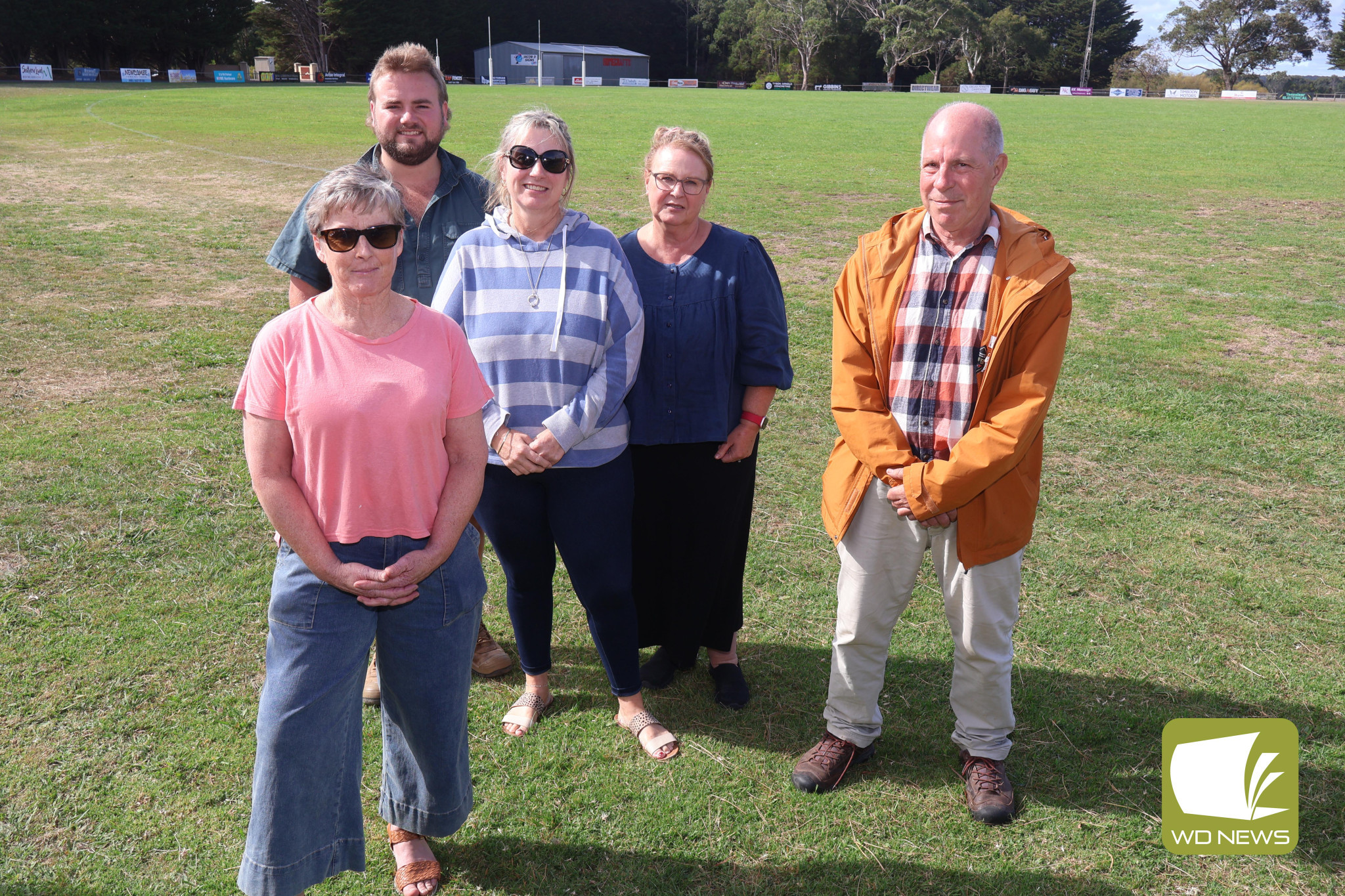Community
16 April, 2025
District plea for answers
AN impassioned plea reignited calls for protective measures against the dramatically rising presence of farm forestry in the Heytesbury district.

On Monday this week more than 30 residents met with Independent candidate for Wannon Alex Dyson at the Simpson Recreation Reserve to discuss their concerns, and advocate for solutions, surrounding significant amounts of agricultural farm land being bought out and transformed into plantations for forestry.
The issue has been among the most prominent to face Corangamite Shire’s agricultural industry since the turn of the millennium.
Last April Corangamite Shire Council released the scathing ‘Grow Corangamite: Sustaining Our Agriculture Future’ discussion paper on the impacts of plantation timber on the shire, which highlights how the agricultural industry accounts for 45 per cent of the shire’s economic output, 38 per cent of jobs and 70 per cent of exports.
Those in attendance at this week’s meeting shared their fears the rise in timber production at the expense of prime agricultural land could have dire consequences for the region.
Job losses and increased bushfire risk were notable concerns amid uncertainty surrounding what is to come.
It is largely unknown just how much land has been purchased for forestry, and questions remain if action can be taken before the region reaches an economic tipping point.
Concerns were also raised young farmers will be unable to enter the industry while competing for land ownership against foreign corporations with hundreds of millions of dollars in their war chest.
Farmers such as 28-year-old Billy Buckingham, who returned to Simpson after working further afield in Melbourne and Geelong to pursue a career in the dairy industry, fears the proud history of dairy farming in the Heytesbury Settlement could be lost.
“This is about sustainability for our community and the future of the agricultural industry in the Heytesbury settlement for dairy, beef and sheep farming,” he said
“I’d come home to the family farm about three-and-a-half years ago, and I want to continue our family legacy and dairy farming business.
“Continued foreign investment and the threat which surrounds it only hampers me in doing that.
“Beyond that it is going to impact food security across Australia – there are so many variables we’ve raised in how widespread the impact is that it’s hard to know where to start, or where it ends.”
Mr Buckingham said he feared for the future of south west communities if the dairy industry is pushed to a breaking point.
“If you look at Cobden, for example, if the Fonterra factory closes down it becomes a ghost town,” he said.
“Dairy, beef and sheep are the biggest employers in this region – and that’s just direct employment without counting jobs which are adjacent.
“If you lose those jobs, what happens to the doctors? The teachers? The small business owners?
“We’d lose everything.”
Among the most popular solutions sought was an urgent moratorium to be placed on the purchase of agricultural land for the use of timber plantations until future assessment can be undertaken detailing the extent of land already lost and the impact of future loss.
The meeting followed a similar format to those hosted in March and July last year with Polwarth MP Richard Riordan, incumbent Wannon MP Dan Tehan and key stakeholders, including Corangamite Shire councillor Jamie Vogels.
Fellow attendee Chris Bell said she didn’t care who was elected to the seat of Wannon at next month’s Federal Election – the need for action to protect south west communities would not change regardless.
“Whoever is elected needs to strive for fairness in our community, the communities around us, and the businesspeople,” she said.
“We’re tired of having to outlay so much money and get nothing back.
“We’ve been through drought which is hurting farmers right now, we’ve been through bushfires, when is it going to be our turn to get something back?
“We can’t even go and buy more land because these companies are making it so hard for young people to purchase more land.
“People are done – they can’t afford to keep outlaying money when they get nothing back.”
Read More: local